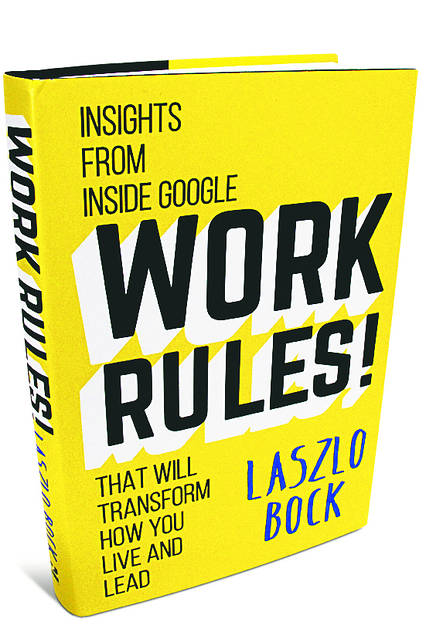A book with the huge title WORK RULES! seemed like an odd choice for vacation…until I started reading. Work Rules! by Laszlo Bock is great vacation reading because that is the best time evaluate if you are doing the right things the right way. I have long been interested in Google’s people practices and this book offers a great look into why Google does the things that they do. The why behind the what is the thing that I’m always seeking to learn from as a leader that desires to serve my team well.
My biggest takeaway from this book is in relation to Google’s recruiting and retention strategies. I am constantly seeking to grow in this area to make sure that we are hiring and keeping the best people at our school. In Christian education, there is a lot at stake each day as our teachers invest in the hearts and minds of their kids. We want to make sure we are doing an excellent job with this high calling that has been placed on us.
I highlighted several things while reading to reference as I serve my team. I’ve posted those notes below…
- Most CEO’s are very good at many things, but they become CEOs for being superbly distinctive at one or two, which tend to be matched to a companies needs at that time.
- People spend most of their lives at work, but work is a grinding experience for most—a means to an end. It doesn’t have to be.
- If you’re changing the world, you’re working on important things. You’re excited to get up in the morning. You want to be working on meaningful, impactful projects, and that’s the thing there really is a shortage of in the world. I think at Google we still have that.
- Building an exceptional team or institution starts with a founder. But being a founder doesn’t mean starting a new company. It is within anyone’s grasp to be the founder and culture-creator of their own team, whether you are the first employee or joining a company that has existed for decades.
- The fundamental lesson from Google’s experience is that you must first choose whether you want to be a founder or an employee. It’s not a question of literal ownership. It’s a question of attitude.
- Having workers meet the people they are helping is the greatest motivator, even if they only meet for a few minutes. It imbues one’s work with a significance that transcends careerism or money.
- Openness demonstrates to your employees that you believe they are trustworthy and have good judgment. And giving them more context about what is happening (and how and why) will enable them to do their jobs more effectively and contribute in ways a top-down manager couldn’t anticipate.
- Think of your work as a calling, with a mission that matters.
- Give people slightly more trust, freedom, and authority than you are comfortable giving them. If you’re not nervous, you haven’t given them enough.
- Only hire people that are better than you.
- The best predictor of how someone will perform in a job is a work sample test.
- The goal of our interview process is to predict how candidates will perform once they join the team. We achieve that goal by doing what the science says: combining behavioral and situational structured interviews with assessments of cognitive ability, conscientiousness, and leadership.
- Following the interviews, we survey every interviewee to find out what they thought of the process, and later use their feedback to adjust our process accordingly.
- At Google we expect that over a team’s life, different skills will be needed at different times, so various people will need to step into leadership roles, contribute, and—just as important—recede back into the team once the need for their specific skills has passed.
- Self-replicating staffing machine:
Set a high bar for quality.
Find your own candidates.
Assess candidates objectively.
Give candidates a reason to join. - What managers miss is that every time they give up a little control, it creates a wonderful opportunity for their team to step up, while giving the manager herself more time for new challenges.
- Pick an area where your people are frustrated, and let them fix it.
- The best way to improve is by talking to those providing feedback and asking them exactly what they hope you would do differently.
- Feedback Survey areas for Managers:
They give actionable feedback that helps their employees improve their performance.
They do not micromanage by getting involved in details that should be handled at other levels.
They show consideration for their employees as individuals.
They keep their team focused on its priority results/deliverables.
They regularly share with their team relevant information from their own manager and senior leadership.
They have meaningful discussions about career development with each member of their team at least once every six months.
They communicate clear goals for their team.
They possess the technical expertise required to effectively manage their team.
Their employees would recommend them to their colleagues. - From the moment we are born, human beings are designed to learn. But…we rarely think about how to learn most effectively.
- A sense of community helps people do their best work just as surely as increasing efficiency does by sweeping away minor chores and distractions.
- For efficiency, community and innovation:
Make life easier for employees
Find ways to say yes
The bad stuff in life happens rarely…be there for your people when it does - For nudging toward health, wealth, and happiness:
Recognize the difference between what is and what ought to be
Run lots of small experiments
Nudge, don’t shove - We are all constantly nudged by our environment and nudging those around us. Use that fact to make yourself and your teams happier and more productive.

